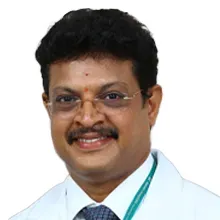Overview of Facial Implant Surgery Treatment India
Facial implant surgery is an advanced technique to enhance facial features and yet keep it natural. Read in detail about the procedure. For further assistance, contact Ortil Healthcare.
The demand for facial implants has hiked up today more than ever before. With the dramatic increase in off-the-shelf fat injections and fillers, the desire for a more permanent option has been observed. This has given a way to facial implants. Essentially facial implants are used to reconstruct, rejuvenate or augment facial contours. It may be a standalone procedure or a part of facial rejuvenation techniques like facelift and blepharoplasty.
Fundamentally, our face is composed of various structural elements (including cheeks, chin, jaw and nose). It is the unique structuring of these elements that distinguish one individual from another. It is when these elements are too substantial or too small that facial contours (using implants) come as a successful rescue. To put it simply, facial implants are synthetic (man-made) substitutes for your otherwise natural body tissues. Most often they are used to adorn your cheeks, chin or nose.
Traditionally these cosmetic implants were limited to a selected few sizes suitable for cheeks and chin only. But now these are available in a number of styles and sizes. It also implies that this treatment is now viable for all areas of your face including cheek, chin and jaw implants.
Types of Facial Implant Surgery Treatment India
Facial Implant Procedure
Ortil health care will help you assess your candidature for a facial implant procedure. After the required evaluation, the following procedure is to be followed:
Before the surgery, you will be asked to quit smoking for at least 6 weeks. Anti-inflammatory drugs, blood thinners like aspirin or other herbal medications must be avoided. On the day of surgery, certain medications and anaesthesia may be administered to ensure the comfort of the patient.
By and large, the facial implant procedure is similar for all facial areas. Surgical markings are made. It is followed by a tiny incision close to which the implant shall be placed. The implant is carefully inserted usually by a sterilized clamp and finally, the incision site is closed with sutures. However, for better understanding, it has been distinguished as follows:
01. Cheek implants - It is the area to be augmented in the cheek that determines the position of the implant on the cheekbone. Cheek implants are mostly placed through small incisions made in the mouth. However, when these are performed with other procedures, alternate incisions in the lower eyelid may be recommended.
02. Chin implants - For chin implants, incisions are made in the mouth, particularly on the line that joins the gums and lower lips. As an alternative, an incision right below the chin may be advised depending on the implant preference and size.
03. Jaw implants - Like the above-mentioned, jaw implants are followed by an incision inside the mouth along the jawline and at the crease where the cheeks and gums meet. Such implants need to be rightfully secured in place with tiny screws to avoid any displacement.
Facial Implant Recovery and Aftercare
Right after the surgery, it is natural to experience post-operative swelling and bruising. There can be mild discomfort for a day or two. Usually, a cold compress is recommended to avoid such pain. Additionally, you may be required to stick to a liquid diet for these two days.
It is extremely pertinent to follow the post-operative care as provided by the surgeon. It includes information about wearing garments, taking prescribed antibiotics and controlled physical activity. You will also be informed about the possible complications and facial implant side effects. Remember that facial implant recovery is highly relative. However, the standard recovery procedure looks as follows:
First Two Weeks
01. You would be able to resume your work and normal physical activities by the end of the first week.
02. Reclining a face-up position at 45 degrees is recommended at least for a week.
03. Within five to ten days stitches may be removed. The sutures inside the mouth will also dissolve in a similar time frame.
04. A soft diet should be preferred for a minimum of ten days post-surgery.
Within the following four to eight weeks, strenuous physical activity may be resumed.
Diagnosis of Facial Implant Surgery Treatment India
Who is the right candidate for a facial implant?
The very first step of any surgery is to ascertain if you are a suitable candidate for it or not. Similarly, for a facial implant, the following parameters are to be considered:
01. You wish to increase the projection of the skin for aesthetic purposes
02. A weak or undefined jawline that doesn’t cosmetically distinguish your neck
03. You want to increase the fullness or definition of the cheeks
04. You wish to revive proportion or contour lost by inevitable ageing
05. Correction of facial deformities caused by injury or congenital conditions
Symptoms and Risk factors
Facial Implant Risks
Providentially, the medical risks associated with facial implants are infrequent and rare. The common complications usually concern aesthetics only. It includes displacement or mal-positioning of implants and extrusion of implants causing infection.
However, it is important to acknowledge that complications are inevitable of any surgery, regardless of its type. Some of the potential facial implant risks are listed as under:
01. Adverse reaction to anaesthesia
02. Accumulation of blood beneath the skin requiring surgical removal (hematoma or seroma)
03. Excessive bleeding
04. Scarring
05. Allergic reactions
06. Infection
07. Damage to underlying structures
08. Unsatisfactory results
Top Doctors for Facial Implant Surgery in India
Empower your Health with the Expertise of Leading Medical Professionals.
Dr. Ganapathy Krishnan
Department of Plastic Surgery
Consultant
Book Appointment
Dr. Sherry Peter
Department of General Surgery
Senior Consultant
Book Appointment
Dr. Sathish M. S. Vasishta
Department of Cosmetic Surgery
Consultant
Book Appointment
Treatment Costs for Facial Implant Surgery
Be the change and be an opportunist in transforming healthcare.
How it's Works
Guiding your Journey from Discovery to Treatment Planning and Beyond.
Discovery
Get a consultation to discover about your treatment
Pre-Treatment
Admission to the best hospital and all pre-treatment facilities
Post Treatment
Get post-treatment follow-up care with medicine fulfillment
Treatment Planning
Hassle-free treatment planning with package & cost estimations
in-treatment
world-class quality procedures and equipment for treatment





















